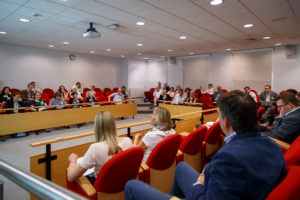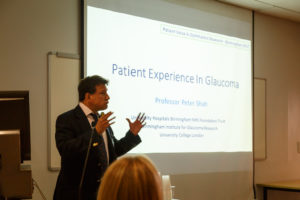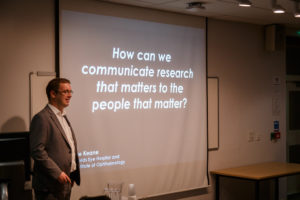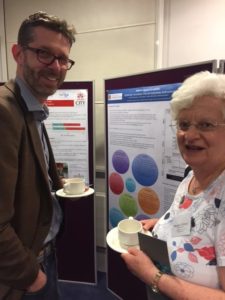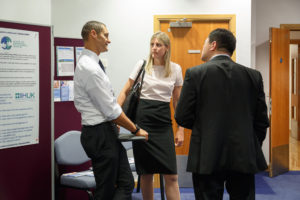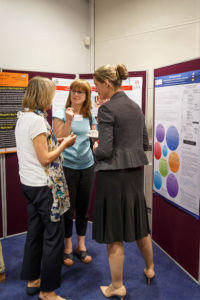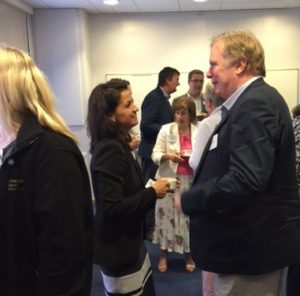This is just a short reminder to you all about our forthcoming Birdshot Day if you are registered to attend. A lot of work has gone into the planning and preparation and we are happy to tell you that everything is well under way.
This year, we are delighted to be welcoming many regular birdshotters as well as a good proportion of new people to our 4th Birdshot Day. You will be amazed to know that we have people travelling from as far away as the US, New Zealand, Malta, Israel, Portugal, Sweden, Switzerland Holland and Germany, as well as from the far corners of the United Kingdom – a truly international occasion.
On the day, the doors will be open from about 9.15am with the first talk starting at 10.00. We will have Birdshot Uveitis Society members, wearing their special T-shirts, downstairs in the hotel lobby area to help guide you up to the conference area on the first floor.
There will be filming taking place in the auditorium sessions, so we will need to ask you to sign a filming consent form (see below).
We always receive a great deal of help on Birdshot Days from the Patient and Public Involvement Team at the National Institute for Health Research (NIHR) Moorfields Biomedical Research Centre. This year, we are very pleased to announce that they will be running an informal lunchtime discussion, chaired by Mr Richard Lee (NIHR Moorfields Biomedical Research Centre). So, if you want to know more about how research is conducted and why it takes so long, or if you have questions about birdshot that you would like to raise in a group discussion, this will be another forum in which you can take part. More information about it can be found here.
To help you get ready, please find the following documents for Birdshot Day which you may like to download and read.
- Programme for the day
- Biographies of the speakers
- Photos of the speakers
- How to get to the Grange City Hotel
- Filming consent 2018
- List of exhibitors 2018
Raffle and BUS merchandise
As usual, there will be a raffle to help raise funds for BUS. Prizes include a Christmas hamper, Johnnie Walker whisky, framed photographs by Robert Connor McPeake, a Gift basket from the US, goodies from Fortnum and Masons, and a landscape textile wall hanging.There will also be special Birdshot Day T-shirts, saffron recipe mugs, caps, etc, for sale.
We will also have printed copies of the recently-published Birdshot Survival Guide available.
Please bring cash with you for your purchases as we don’t have the facility to take payments by card.
Transport
We have checked for train cancellations over the weekend of the conference. It seems that the District Line (London Underground) is going to be operating a good service, but depending on where you are travelling from, there will be a few line closures, so it is worth checking this in advance at http://content.tfl.gov.uk/track-closures.pdfl
And finally…
if for any reason you find you won’t be able to attend after all, please do let us know. We will be finalising numbers in the first week of November, and we like to gauge this as accurately as possible to avoid waste.
The Birdshot Team are all looking forward to meeting you. It is not long to go now!
Annie
for Team Birdshot
info@birdshot.org.uk
